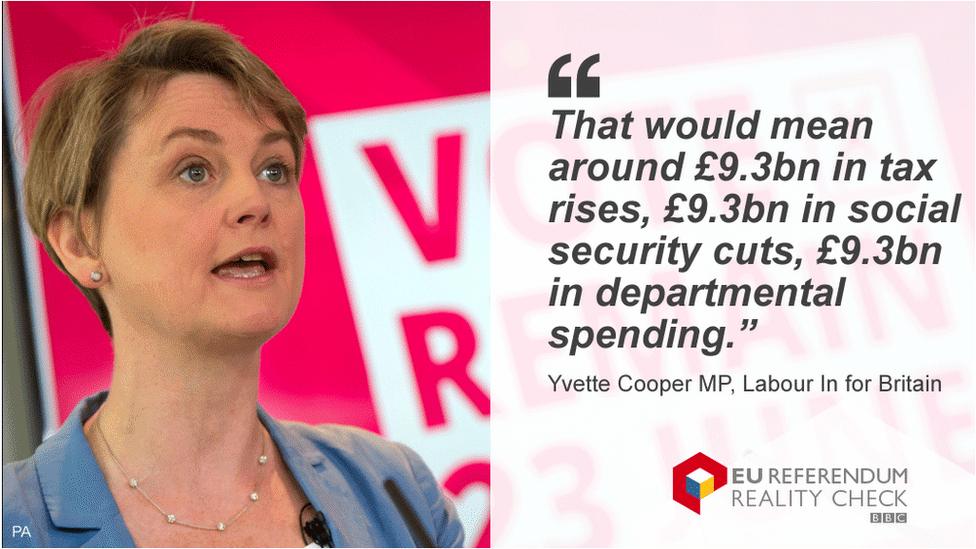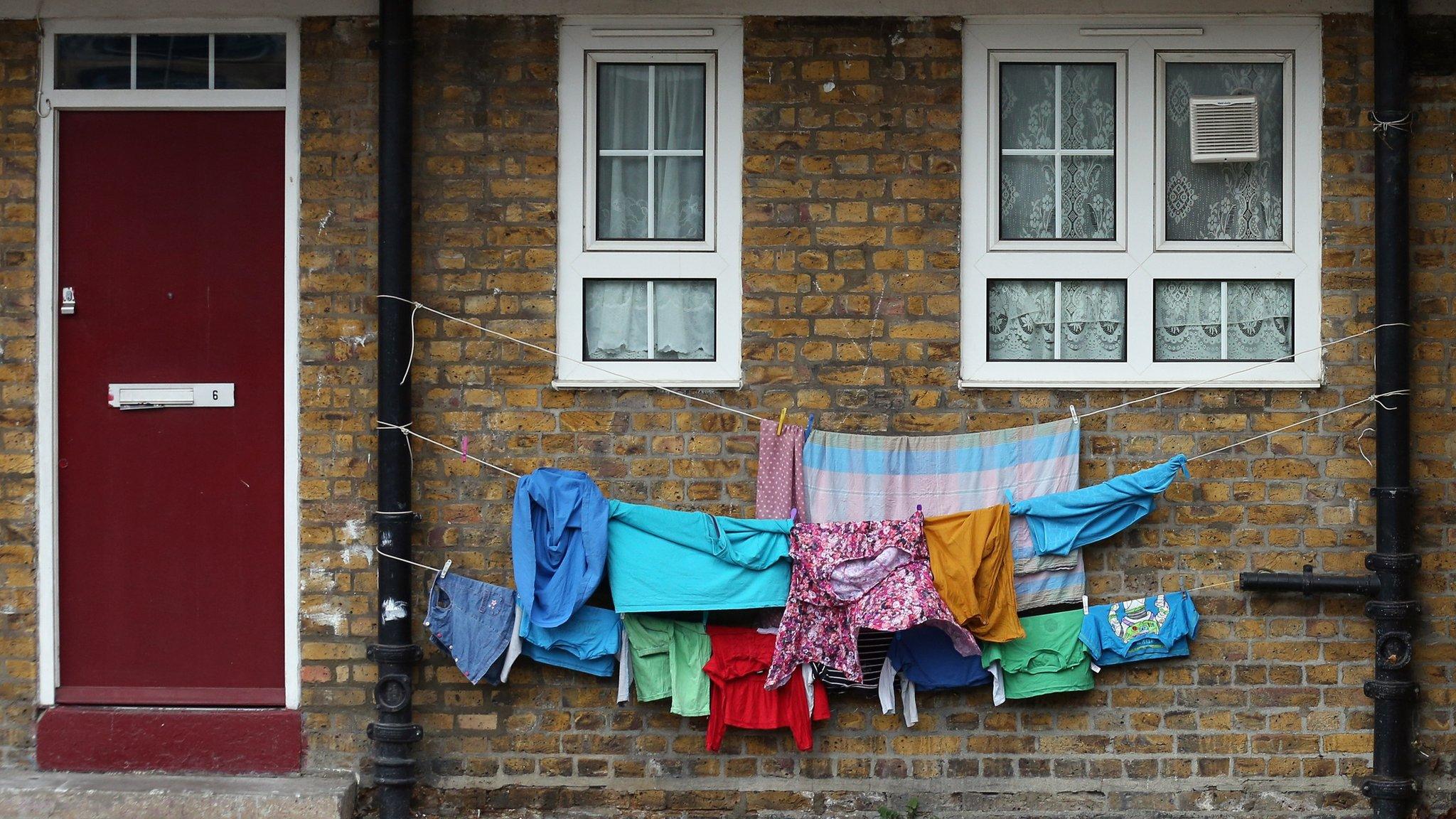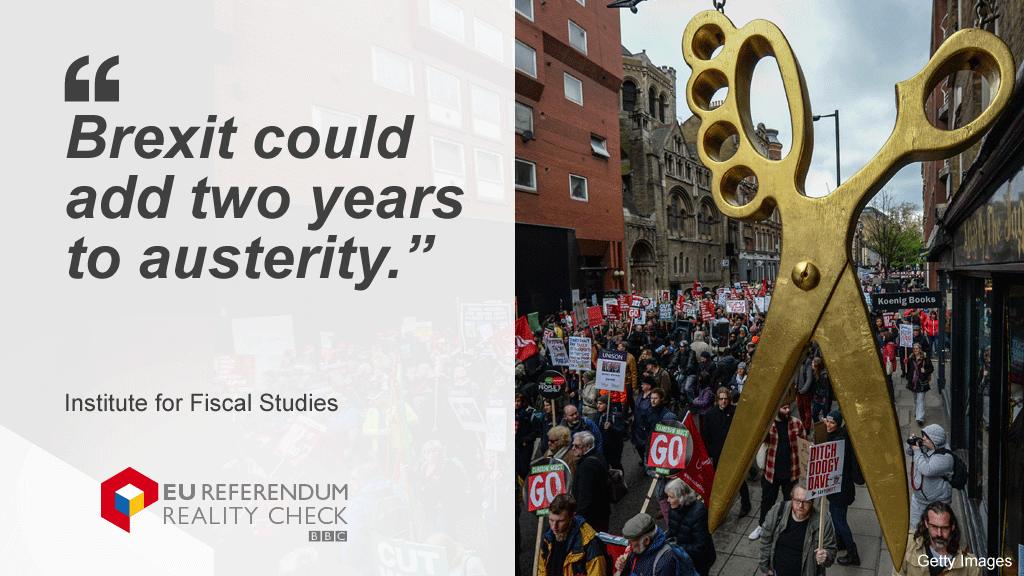Reality Check: Would Brexit mean £18bn of welfare cuts and tax rises?
- Published

The claim: The UK leaving the European Union would mean families being hit by £18bn in welfare cuts and tax rises.
Reality Check verdict: This figure is derived from a pessimistic scenario in an economic model. There are many assumptions that must be accepted to reach it. If you believe that leaving the EU would cut economic growth then it is likely that would mean austerity having to be deeper or longer if the deficit is to be eradicated, although it is impossible to say for sure by how much or how long.
Labour In for Britain said on Friday that the UK leaving the European Union would mean an extra £18bn of welfare cuts and tax rises in 2019-20.
This figure is based on the work of the Institute for Fiscal Studies (IFS), external, which the Reality Check team looked at last month.
The IFS took the predictions of other economic forecasters and judged how much the expected slower rate of economic growth would hit the public finances.
In its pessimistic scenario, in which the UK does not negotiate preferential access to the single market, it reckons that there would be a deficit in the public finances of £28bn, instead of the £10.4bn surplus that is currently expected for that year.
The IFS suggested that under those circumstances, the government would probably decide to extend austerity at its current rate for another two years.
Labour In for Britain predicts that the government would actually try to balance the budget in 2019-20 , which would mean raising an extra £28bn that year.
It assumes that would be divided equally between tax rises, social security cuts and departmental spending cuts, with £9.3bn being raised by each.
So to get to this number, we must accept the economic modelling with which it starts, then believe the IFS's transmission mechanism that calculates how much slower economic growth leads to weaker public finances and finally accept the assumptions about how the government would choose to deal with a deficit in 2019-20.
The National Institute of Economic and Social Research,, external the economic forecasts of which were used by the IFS in its calculations, released a similar piece of work on Thursday. although it is thought the government would be trying to raise a higher figure of £44bn in 2019-20.



- Published21 March 2016

- Published9 June 2016

- Published25 May 2016

- Published22 February 2016
